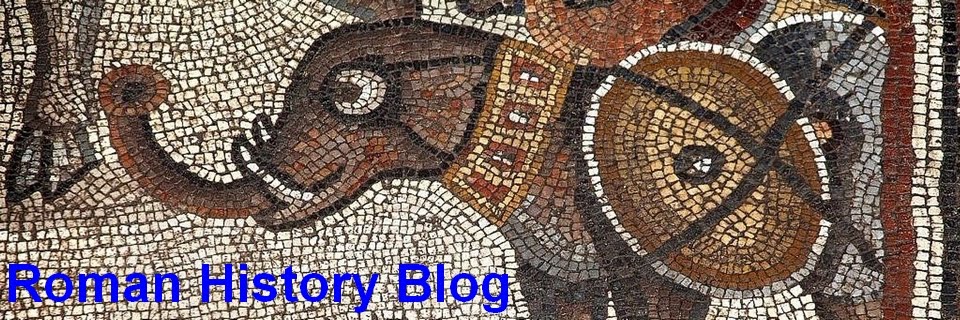Book Review by the Roman History Blog
Romulus: The Legend of Rome's Founding Father
by Marc
Hyden
This book
charters the rise of Romulus from his beginnings. He was the son of
the god Mars, according to legend and a member of the Alba Longa's
royal household. Romulus was left for dead on the bank of the River
Tiber but the gods had other plans for him. The river carried him
away but he managed to scramble back to the side where he was suckled
by a she-wolf. Romulus founded Rome after he murdered his brother
Remus.
This book
explains the Trojan War and how Rome was born out of the fallout of
this war. It tells the life story of Romulus and Remus, how they grew
up and left Alba Longa to form their own colony. It explains who
killed Remus and the outcome. Romulus may not of killed Remus
directly! The book explains what Romulus did after the death of
Remus. He had to deal with an epidemic and consulted an oracle to
learn how to bring-round the angry gods and to stop this plague. An
epidemic - sounds familiar!
The book
details Romulus's building of Rome with two possible dates and its
location. It also discusses King Romulus's running of Rome, how it
dealt with its neighbours especially the Sabines and Caeninenses.
Tatius was the king of the Sabines and joint-ruler of Rome with
Romulus for several years before his death and this is well covered. The author also describes how women were treated in this period
and that Romulus made a few concessions but also introduced new laws
on marriage and morality.
Romulus
died in his mid 50's but why didn't his son rise to the position of
King? The author Marc Hyden explains why in detail giving the reader
an important insight into possible reasons why!
This is a
splendid book and very informative. The author, Marc Hyden has done
his research and presented different narratives to recreate this
interesting time period of which we see the first legendary King of
Rome elevated to power, which the Romans believed in. If you are
passionate about the Romans and classics then this book is a must
have edition for your library! Its really is an inspiring read!
Get the Kindle at amzn.to/3uWkjkS
Get this
book at https://amzn.to/30kFwHA
According to legend, Romulus was born to a Vestal Virgin and left for
dead as an infant near the Tiber River. His life nearly ended as quickly
as it began, but fate had other plans. A humble shepherd rescued the
child and helped raise him into manhood. As Romulus grew older, he
fearlessly engaged in a series of perilous adventures that ultimately
culminated in Rome's founding, and he became its fabled first king.
Establishing a new city had its price, and Romulus was forced to defend
the nascent community. As he tirelessly safeguarded Rome, Romulus proved
that he was a competent leader and talented general. Yet, he also
harboured a dark side, which reared its head in many ways and tainted
his legacy, but despite all of his misdeeds, redemption and subsequent
triumphs were usually within his grasp. Indeed, he is an example of how
greatness is sometimes born of disgrace. Regardless of his foreboding
flaws, Rome allegedly existed because of him and became massively
successful. As the centuries passed, the Romans never forgot their
celebrated founder. This is the story that many ancient Romans believed.
Links
Roman
History on Twitter https://twitter.com/romanhistory1
Roman
History Website http://romanancienthistory.blogspot.com/








